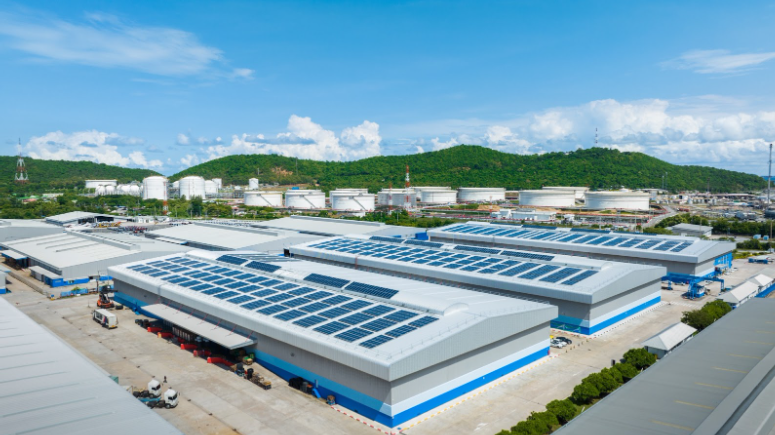Indian incentives & subsidies makes residential & commercial solar adoption an attractive option in the world’s most populous country
India is rapidly emerging as a global solar energy leader, making significant progress in the renewable energy sector. With an abundance of sunlight across the country, solar power presents a promising solution to meet the increasing energy demands while reducing the environmental impact.
India is on the path to a sustainable and green future, driven by the commitment to a clean environment thanks to the visionary approach of the country, where solar power plays a central role in the country’s energy landscape.
With the core focus of the National Solar Mission, a dedicated initiative to promote solar power, India has set an ambitious target to generate 450 gigawatts of renewable energy by 2030, five-fold increase from the current capacity.
One of the most significant contributors to this remarkable transformation has been the government’s generous subsidies for solar energy. These subsidies have made solar power affordable for millions of households and businesses across the country. Reduced installation costs and financial incentives have made solar energy accessible, creating a win-win situation for the environment and the economy.
What is the state of solar energy in India?
In the past year, India has not only become the most populous country in the world, but has also installed a record number of solar panels. The South Asian giant’s fastest growing industry in 2021 was the solar energy industry. India was the fourth highest solar generating economy in the same year.
The Indian government is pioneering a new economic model aiming to lift millions out of poverty while avoiding carbon-intensive approaches. Clean energy is growing at a faster rate in India than in any other major economy.
Going beyond massive solar farms in desert regions of Rajasthan and Gujarat, many public-private utility companies and rural communities have embraced solar energy. Solar has provided stable electricity for India’s rural and developing regions, but has not grown as quickly in India’s urban regions.
Similar to other countries, solar has not been evenly distributed across India. The states with the largest solar capabilities, in order, are Rajasthan, Gujarat, Karnataka, Tamil Nadu and Maharashtra.
The Solar Subsidy Landscape
To promote the adoption of solar energy, the Indian government has introduced subsidies based on the system’s capacity. These incentives are designed to promote solar adoption across different scales, making solar not only environmentally friendly but also financially viable for households and companies.
Here’s a breakdown of the subsidy calculation parameters:
System Capacity: The amount of subsidy you receive depends on the capacity of your solar power system.
- Up to 3 kW: For systems with a capacity of up to 3 kW, a substantial subsidy of ₹14,588 per kW is available.
- Above 3 kW & up to 10 kW: If your system capacity falls between 3 kW and 10 kW, you’ll receive ₹14,588 per kW for the first 3 kW and thereafter, ₹7,294 per kW.
- Above 10 kW: For larger systems exceeding 10 kW, a fixed subsidy of ₹94,822 per kW is provided.
These subsidies are directly credited into the beneficiary’s bank account, making the entire process efficient and hassle-free.This strategy will significantly speed up the transition from fossil fuels to renewable energy.
The National Portal of Rooftop Solar
In a bid to encourage the widespread adoption of solar energy, the Indian government has launched the National Portal of Rooftop Solar.
This online platform is a one-stop solution for individuals and businesses interested in adopting solar power. By registering on this portal, you can check your eligibility for the solar subsidies. The six-steps process is designed to be user-friendly, allowing easy access to essential information to make the switch to clean energy:
- Streamlined Process: The portal provides a simplified registration process, making it easier for people to join the solar movement.
- Easy Eligibility Checking: Individuals can quickly assess their eligibility for solar subsidies based on their system capacity.
- Information Hub: The portal serves as an informative hub, offering essential details about solar energy, subsidies and installation guidelines.
Making solar power accessible to all
The implementation of solar subsidies has made solar energy accessible, making it available to a wider range of the population. Solar power is no longer just for the wealthy part of the population but an attractive choice for everyone.
The reduced installation costs, combined with the government’s financial incentives, have significantly reduced the barriers to entry into the world of solar energy.
India’s solar revolution sets the stage to a cleaner and sustainable future in the country. The government’s initiatives, including the subsidies and projects like India’s first solar powered village are building the way towards a greener tomorrow and demonstrate dedication to financially supporting and increasing citizens’ quality of life.
As more individuals and businesses embrace solar energy, at Enact we look forward to supporting the transition to a cleaner and more sustainable planet. Together we can harness the sunshine and create a brighter future for India.
Enact’s presence in India
Enact, born a decade ago in California and has expanded to over 30 countries with the mission of transforming how solar and energy storage projects are designed, deployed and managed.
In India, Enact has established its presence in India’s tech hub Bangalore (Bengaluru). Thanks to the immense potential of renewable energy and strategic partnerships, such as the one with Redington Solar, Enact is accelerating the transition to solar with multiple commercial projects across the country, supporting leading installers companies to design better energy solutions and grow their solar and storage business.
Enact made a significant impact on the hospitality industry in India by guiding and supporting the leading chain LemonTree Hotels in their transition to solar power. Coordinating the entire process of rooftop PV installation, guaranteeing a significant cost reduction while achieving a notable decrease in their carbon footprint.
With the innovative Design as a Service (DaaS), Enact supports the installation teams of leading companies like Exide in creating custom solar proposals. Our team of expert designers ensures professional results and technical specifications in each proposal.
How Enact supports Indian installers
Solar installers receive dedicated support from Enact, at every stage of their operations to ensure the success of each project. Through our all in one digital platform, installers can effectively manage solar and storage projects. monitor leads and create tailored solar proposals:
- Design your Solar & Storage projects
- Track and Manage Leads
- Eliminate the hassle of a site visit
- Manage and monitor projects from a single platform
Enact platform has proven to be a game-changer for solar installers, facilitating thousands of successful project implementations and enabling a simpler, highly efficient solar experience — An overview of case studies can be found on the Enact website.
Additionally, Enact is proud to attend REI Expo in Greater Noida, Uttar Pradesh. Solar installers and professionals have the opportunity to connect with Enact during the show in Greater Nodia from Wednesday, Oct. 4 to Friday, Oct. 6.
We are excited to attend REI and showcase how our solar software platform is revolutionizing solar experiences for installers. As we showcased the latest version of the Enact platform at RE+ 2023 in Las Vegas, attendees can see how Enact is transforming the solar industry.
Thousands of solar installers have already benefited from Enact platform, experiencing a smoother workflow, improved project management and productivity!
Schedule a free Demo today:
https://enact.solar/india-commercial/




